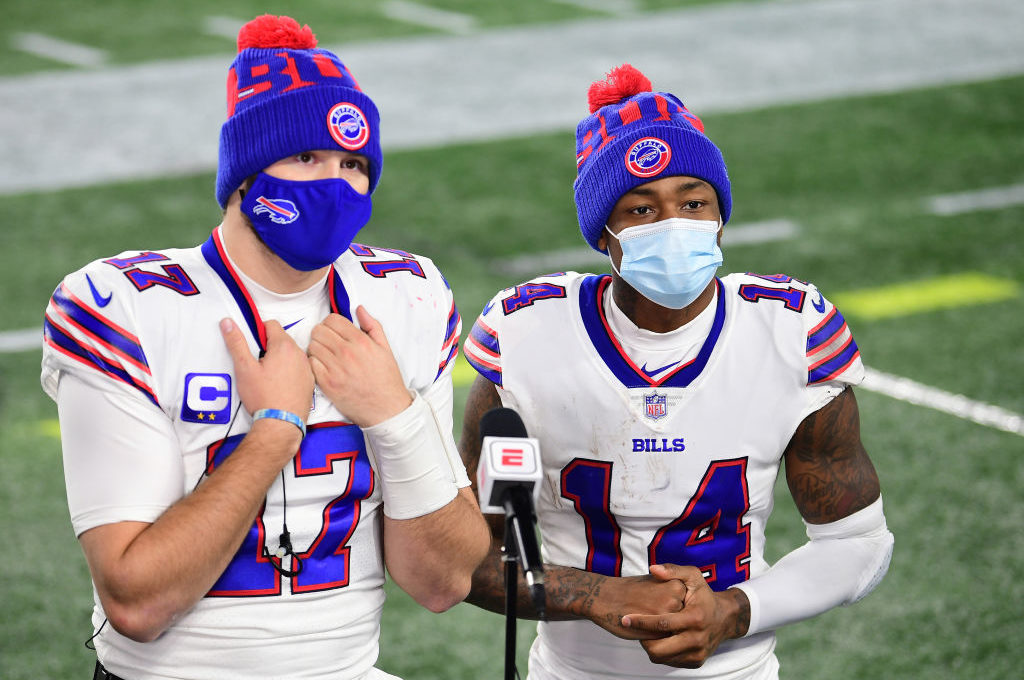For millions of fans, the only thing more important than the NFL from September to January is fantasy football.
In the US and Canada alone, there are an estimated 59 million fantasy sports players — one-sixth of the entire population. These players spend an average of seven hours a week — almost a full working day — consuming fantasy content, according to Andrew Billings, an expert in fantasy sports at the University of Alabama.
The rise of much modern sports — most obviously cricket — is inextricably linked to gambling. So it is with fantasy sports. It’s the numbers, stupid! Then obsessing over stats. With sports gambling illegal in most states until a Supreme Court ruling in 2018 overturned a federal ban, the fantasy world filled the void. By offering ‘prizes’ for winning, fantasy sports effectively served as gambling by another name. Fantasy leagues successfully argued that the games were skills-based and therefore not affected by anti-betting regulations. The industry is now worth $7 billion a year in the US alone.
Why do so many of us care so much? At their best, fantasy sports are played among friends. But even when this isn’t the case, fantasy sports provide a sense of community — often between people who have never met in real life. Sociability is the biggest factor driving engagement: fantasy sports are a way to maintain bonds with those who have moved away or simply become busier, Billings explains. Fantasy sports are disproportionately popular among men, with upwards of 80 percent of players male. They provide an endless source of conversation, bridging generational and even political divides.
Rather than endlessly lamenting their favorite teams’ failings or refusal to sign some player, fantasy games give fans the illusion of power. At the heart of the fantasy appeal is what has been called ‘competitive fandom’, which allows players to show off their knowledge. It’s a nerd’s paradise. For a period last year chess grandmaster Magnus Carlsen was the global leader of soccer Fantasy Premier League. He eventually came 11th out of 7.5 million players. Draft leagues in fantasy sports are often played for a pot of cash, but mostly the stakes are small. Really the appeal lies in the oneupmanship and the irresistible schadenfreude when others fail.
Fantasy sports embody — and are accelerating — a fundamental change in how we view sports. Among younger fans, especially those not rooted in the community of the team they follow, the nature of fandom is shifting. Many new-age fans don’t follow teams in the traditional way; increasingly, they follow the players themselves. If your favorite NFL player joins the New England Patriots, you can sign him again on your fantasy team the next season. Such an approach chips away at traditional tribalism, inverts loyalties and leads to the disorienting feeling of cheering on players from opposing sides in the same match. It is the individuals, and the way in which they help the self, that matter more than shared enthusiasm.
The very way in which we judge players can be shaped by fantasy sports. The sports world becomes a sort of stock market. In place of opinions, we have the cold facts of the number of fantasy points that a player accrues — or doesn’t. Again, team success becomes less relevant. Soccer fans know Roberto Firmino has been a crucial figure in Liverpool’s Champions League and Premier League triumphs in the past two seasons. But Firmino is also one of those players whose status is diminished in the fantasy world because, for all his brilliant link-up play from deep, he doesn’t generate masses of fantasy points through goals and assists. He doesn’t represent a good return on investment.
The divisions between real and fantasy sports are, however, being slowly eroded. For many, it is already impossible to divorce the experience of watching a sports game from playing fantasy sports: to do the first is to do the second simultaneously. People who play fantasy sports go on to watch more sports, especially matches not involving the team they support, ultimately driving up the value of broadcasting rights. Leagues such as the NFL and the Premier League actually lose money on running their own fantasy games, which they offer for free, because they are a way of increasing fan engagement.
A glimpse of how the marriage between real and fantasy sports has developed was provided by this year’s Indian Premier League cricket competition, which was sponsored by a fantasy sports company. In the 10-second countdown before every game, faces of people playing the fantasy IPL game were flashed up on the screen, beamed to millions around the world. During matches, commentators discussed their fantasy teams and compared points tallies. Is this using real sport to promote fantasy sport? Or using fantasy sport to promote real sport? It can be increasingly hard to tell.
The final frontier, perhaps, is that of the fantasy world ruining real relationships. Addiction to fantasy sports has already been cited in US divorce cases. Perhaps it will ruin all teamwork in the end.
This article was originally published in The Spectator’s January 2021 US edition.

























